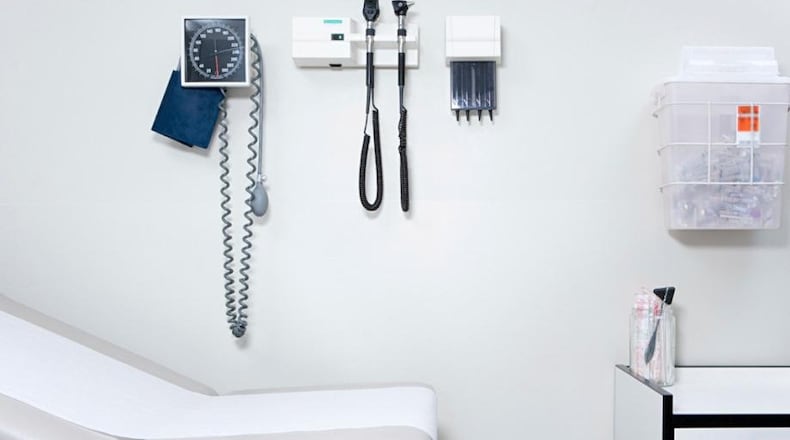The CDC says if there’s a person who is sick with the symptoms of COVID-19 — cough, fever and shortness of breath — they should care for themselves at home unless their symptoms become severe enough where they can no longer manage their care at home. People with underlying conditions and older people should call their providers early, even if they are having a mild case.
The person who is sick should stay in one room, away from other people, separated as much as possible.
“If someone starts to become symptomatic, trying to sleep in a separate bedroom from everyone else and trying to use a separate bathroom from everyone else would be ideal,” said Stephen Roller, clinical director for Primary Health Solutions, a community health center with a new location in the Grafton neighborhood.
If you do only have one bathroom, you want to make sure you clean the bathroom thoroughly after each use, said Dan Suffoletto, spokesman for Public Health - Dayton & Montgomery County.
Don’t share personal household items, like dishes, towels and bedding.
If facemasks are available, have them wear a facemask when around other household members. With severe problems in the mask supply chain, most masks are being sent to protect frontline providers, but you can improvise at home with a scarf, bandana or by sewing a cloth mask.
If the sick person needs to be around others — within the home, in a vehicle or at the doctor’s office — they should wear a facemask. It the sick person can’t wear a facemask, like if they are having difficulty breathing with a mask on, the caregiver should wear one while in the same room with them.
Suffoletto said family members should wash hands often with soap and water for at least 20 seconds, especially after interacting with the sick person. If soap and water are not readily available, use a hand sanitizer that contains at least 60% alcohol. Cover all surfaces of your hands and rub them together until they feel dry.
Avoid touching your eyes, nose and mouth. Every day, clean all surfaces that are touched often, like counters, tabletops and doorknobs.
Wash laundry thoroughly and, if laundry is soiled, wear disposable gloves and keep the soiled items away from your body while laundering. Wash your hands immediately after removing gloves.
Marquetta Colbert, family nurse practitioner with Colbert Family Health & Wellness in Trotwood, said relatives who may take care of family members who have other health problems such as being on chemotherapy or COPD especially need to take precautions so they don’t bring the virus home.
“So they should be cleaning their home, cleaning the doorknobs, paying special attention to the bathroom and in the kitchen, because of their family member that’s in the house that already has been immuno-compromised,” Colbert said.
She said families should come up with a plan now on who would take over as a caregiver in case someone gets sick.
Don’t have any unnecessary visitors. Colbert said, instead, people should find ways to connect over the phone or through other technology.
“We live in the world of technology. People have to limit contact, but there’s so many different options,” Colbert said.
People can contact their primary care provider who knows their medical history and personal situation. Many practices in the area have expanded their availability for patients to talk to providers over the phone or through video chat. Colbert Family Health & Wellness and Primary Health Solutions both have telehealth options and are taking new patients.
“There’s a lot of opportunities to be able to use telemedicine and a phone call to have general questions answered,” Suffoletto said.
While this is not CDC’s policy, some health experts, including the World Health Organization, have advised leaders find ways for people with mild cases to heal while living in other facilities outside the home to prevent the disease from spreading. Some U.S. health care workers and unions have also advocated for other living options being provided during the pandemic because of health workers’ higher risk of bringing the virus home.
For treating symptoms, the CDC said to make sure the sick person drinks a lot of fluids to stay hydrated and rests at home. Over-the-counter medicines may help with symptoms. For most people, symptoms last a few days and get better after a week.
The CDC said for people sick from COVID-19 who want to stop home isolation, if they can’t get a test to determine if they are still contagious, they can leave home after these three things have happened:
• They have had no fever for at least 72 hours (that is three full days of no fever without the use medicine that reduces fevers);
• Other symptoms have improved (for example, when their cough or shortness of breath have improved); and
• At least seven days have passed since their symptoms first appeared.
About the Author
